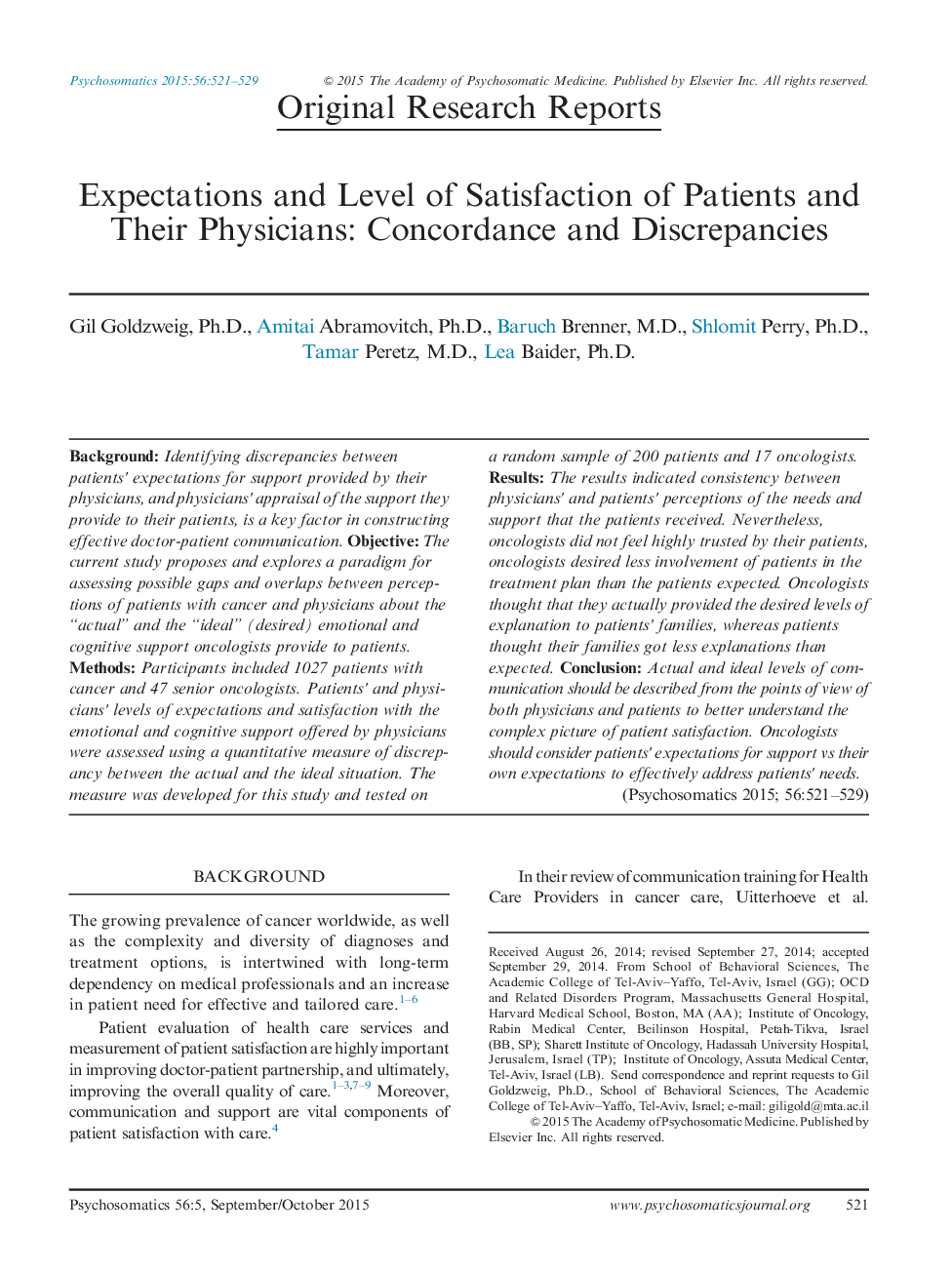| Article ID | Journal | Published Year | Pages | File Type |
|---|---|---|---|---|
| 337754 | Psychosomatics | 2015 | 9 Pages |
BackgroundIdentifying discrepancies between patients׳ expectations for support provided by their physicians, and physicians׳ appraisal of the support they provide to their patients, is a key factor in constructing effective doctor-patient communication.ObjectiveThe current study proposes and explores a paradigm for assessing possible gaps and overlaps between perceptions of patients with cancer and physicians about the “actual” and the “ideal” (desired) emotional and cognitive support oncologists provide to patients.MethodsParticipants included 1027 patients with cancer and 47 senior oncologists. Patients׳ and physicians׳ levels of expectations and satisfaction with the emotional and cognitive support offered by physicians were assessed using a quantitative measure of discrepancy between the actual and the ideal situation. The measure was developed for this study and tested on a random sample of 200 patients and 17 oncologists.ResultsThe results indicated consistency between physicians׳ and patients׳ perceptions of the needs and support that the patients received. Nevertheless, oncologists did not feel highly trusted by their patients, oncologists desired less involvement of patients in the treatment plan than the patients expected. Oncologists thought that they actually provided the desired levels of explanation to patients׳ families, whereas patients thought their families got less explanations than expected.ConclusionActual and ideal levels of communication should be described from the points of view of both physicians and patients to better understand the complex picture of patient satisfaction. Oncologists should consider patients׳ expectations for support vs their own expectations to effectively address patients׳ needs.
